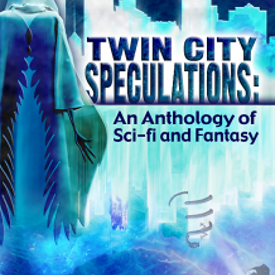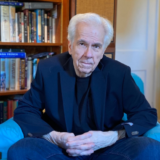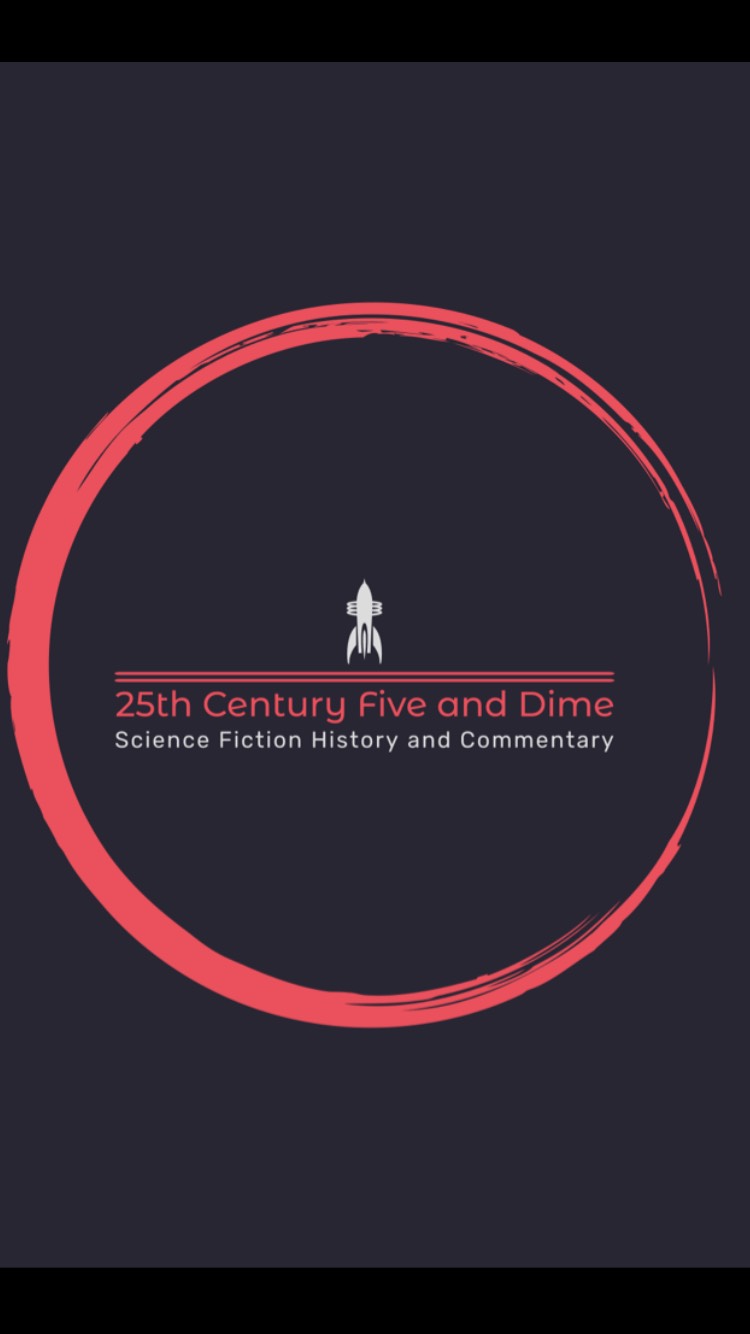 Some writers really can’t stand being labeled a science fiction or horror author. Labels and genres are generally about marketing although I feel most authors follow the Joe R. Lansdale way of thinking, he has said “Never considered myself truly within any group, though some had tried to tag me. I think the tags do nothing for you but freeze you in amber. No splatterpunk, horror labels for me. I’m a writer that writes in those genres, but
Some writers really can’t stand being labeled a science fiction or horror author. Labels and genres are generally about marketing although I feel most authors follow the Joe R. Lansdale way of thinking, he has said “Never considered myself truly within any group, though some had tried to tag me. I think the tags do nothing for you but freeze you in amber. No splatterpunk, horror labels for me. I’m a writer that writes in those genres, but
others as well, so the labels are only correct in the moment. I am the Lansdale Genre, for better or worse.”
There is a certain stigma attached to being called a Science Fiction author, enough so that Margaret Atwood argued with Ursula K. Leguin that she was not an SF writer. It is one thing to argue that The Handmaid’s Tale with its religious dystopia is not SF but it was comical when Mary Doria Russell denied that her first contact on a colony world novel The Sparrow was not SF.
Even Stephen King, the human being who is the first thought when you think of when you think of the horror genre doesn’t relate to the label as a horror writer. I am sure it is a reaction to the famous story he tells of trying to convince a woman in a grocery store that he wrote Rita Hayworth and the Shawshank Redemption.
As a Phil Dickian researcher, I am aware that he was desperate throughout the 50s to prove himself capable of publishing a mainstream novel. Before he met Anthony Boucher whom he respected, a young Phil had written off his beloved pulp SF as kids stuff. Certainly, the nerdy reputation given to Trekkies, Whoians, and fan culture for decades was one of mockery. This is not the case now. We are the mainstream, and yet some writers still avoid the label like the plague. Science fiction films are many of the biggest-grossing films ever, and SF books have filled the bestseller list for years. Writers like PKD, Octavia Butler, and Leguin are rightly considered as the most important writers of the 20th century.

A Hugo award meant little to a Philip K Dick who had almost a dozen mainstream novels rejected around 25 times. SMLA his agency just gave up. To me, however, the writer who most successfully balanced these worlds was Walter Tevis.
As far as I can tell Walter Tevis is the only author who seemed to perfectly balance being a mainstream and a genre author. JG Ballard got critical literary validation but his mainstream novels were greatly outweighed by his surreal and speculative fiction. Vonnegut shook the label but his greatest works are SF. Tevis has had genre classics like The Man Who Fell to Earth, as well as mainstream success with The Hustler early in his career and even recently decades after his death when Queen’s Gambit became the water cooler show of 2020.
As high class and respected as those mainstream novels are, they were written by an author who wrote to Fantastic Adventures magazine at 12 years old. It helps that Tevis only wrote six novels. The balance is perfect. Three mainstream and three SF. He followed up The Color of Money and Queen’s Gambit with Steps of The Sun (his only stinker in my opinion) and then died from Lung cancer in his fifties. This interview done while he was writing Steps of the Sun shows the Tevis attitude.
“But having done two novels in a row in which people smoke Marlboros and drive Buicks and turn on the Sonys and they inhabit the world, the real world that we all know and aren’t slightly bored with, it’s–it would be fun, I think, to do another fantasy novel, another speculative fiction novel in which I can invent my world. You know, when I invent a future as I did in The Steps of the Sun, which takes place around the 2060s, I’m not interested in predicting the future. I don’t know what the future is going to be like. And, I’m not arrogant enough to pretend to be a futurologist. Most of which, I think, futurology, I think, its largely nonsense, anyway–extrapolating from curves. But, so, I don’t know what the future will be like. But I like to invent my own version of the future for the fun, for the play.”
For the fun, for the play.
 When I started to enjoy the new take on The Man Who Fell to Earth from creators Alex Kurtzman and Jenny Lumet I decided to finish reading all of the Tevis books. I mean sadly there are so few of them. I knew I wanted to write about him, but I figured why not know it all.
When I started to enjoy the new take on The Man Who Fell to Earth from creators Alex Kurtzman and Jenny Lumet I decided to finish reading all of the Tevis books. I mean sadly there are so few of them. I knew I wanted to write about him, but I figured why not know it all.
Tevis is an interesting case because his first published stories were science fiction, and while many writers in the genre wanted to break out of the genre ghetto they never did. Tevis did the opposite, breaking out in the mainstream with his debut The Hustler. He had already built his rep in the pulps with short stories and that was important.
His skill at world-building honed in many science fiction stories is clear when you read The Hustler; it is one of the things that makes the thing work. The subtle ease with which he builds the world of the 50s poolhall is done with a world-builder eye in a way most mainstream authors don’t think about. They assume you know enough about the world. This also worked for Charles Beaumont the genre author (most famous for writing for the original Twilight Zone) who broke in with one mainstream novel before he died tragically young. They brought that world-building skill most mainstream writers never considered.
 That 12-year-old who wrote fan letters was just two years from the culture shock of moving from San Francisco to Lexington Kentucky. Science fiction was an escape. If you look at these stories as much more than that you may be missing the point. Tevis was an English professor and during the nearly 20-year period when he was too drunk and frustrated to write, but he kept teaching. I imagine as an editor or teacher that he had a brutal red pen. All of his novels are inspired by his life. I found The Man Who Fell To Earth to be inspired by his drinking and feeling of being an outsider in Kentucky where he spent his teenage years. A subject he returned to in Queen’s Gambit. The competitive and outsider nature weaved together in that novel is something most of you will know as that novel became a hit Netflix series.
That 12-year-old who wrote fan letters was just two years from the culture shock of moving from San Francisco to Lexington Kentucky. Science fiction was an escape. If you look at these stories as much more than that you may be missing the point. Tevis was an English professor and during the nearly 20-year period when he was too drunk and frustrated to write, but he kept teaching. I imagine as an editor or teacher that he had a brutal red pen. All of his novels are inspired by his life. I found The Man Who Fell To Earth to be inspired by his drinking and feeling of being an outsider in Kentucky where he spent his teenage years. A subject he returned to in Queen’s Gambit. The competitive and outsider nature weaved together in that novel is something most of you will know as that novel became a hit Netflix series.
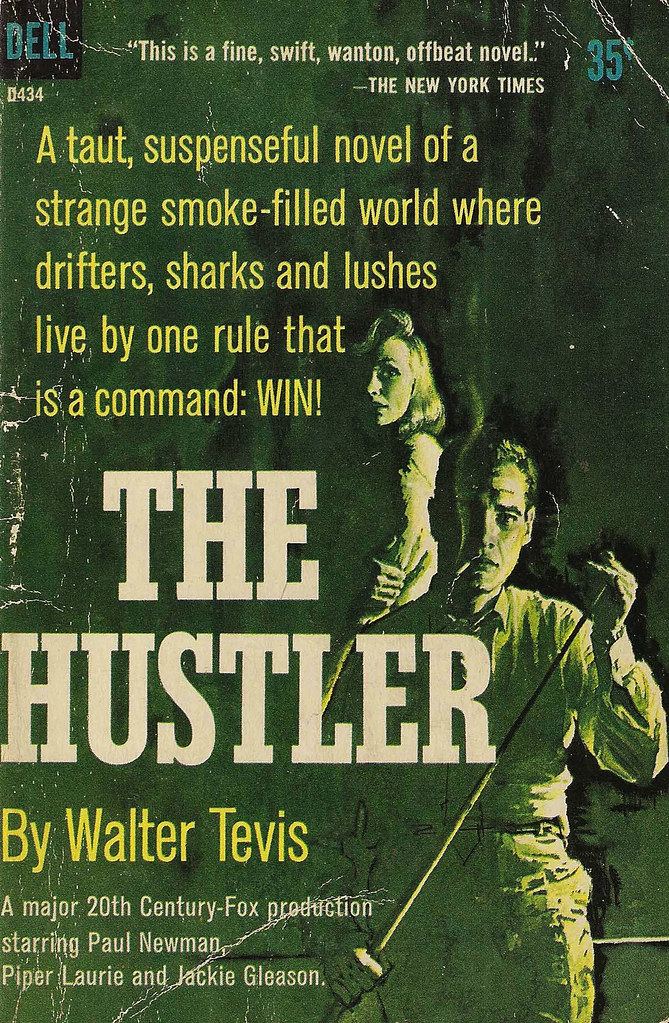 The Hustler is the most autobiographical novel Walter Tevis wrote, before he settled down to go to college, he got wrapped up in life in pool halls. How good he was at Hustling and how much is made up is hard to tell, but one of the things that makes The Hustler a great novel is the
The Hustler is the most autobiographical novel Walter Tevis wrote, before he settled down to go to college, he got wrapped up in life in pool halls. How good he was at Hustling and how much is made up is hard to tell, but one of the things that makes The Hustler a great novel is the
details.
“The heavy undercurrent of voices, the clicking of many balls, the soft cursing and the dry laughter, the banging of cue sticks on the floor.”
The story Of Fast Eddie Felson, a pool hall hustler from the West Coast who just showed up in Chicago to play Minnesota Fats (played by Jackie Gleason in the movie) the greatest hustler of all time. The misfit outsider with no sense of home is the thing That unites The Man Who Fell to Earth, and Queen’s Gambit, but it is The Hustler that expresses it clearly.
“He looked at his watch. A quarter of twelve. He would probably be having coffee with her now if he were home. Home? What in the hell did that mean- He didn’t have any home. But the idea stayed with him for several minutes, the idea of a house somewhere and Sarah, doing whatever women are supposed to do in houses.”
This is when I realized Fast Eddie Felson was just as much an outsider as Thomas Newton in The Man Who Fell to Earth. The idea that he could settle down and have a normal life was laughable to him. He had not defeated Minnesota Fats after all. His ticket is the relationship that is most important to him Bert. The bankroller, the man who used to own a restaurant with Minnesota Fats. The guy who would fork over the cash win or lose. Bert is his guru even though he can’t teach Eddie anything about playing pool. He teaches Eddie to win. Bert teaches Eddie like Benny teaches Beth in Queen’s Gambit and Mary Lou teaches Thomas Newton to be human. It is exciting learning that the Tevis novels have a common theme, before Queen’s Gambit became a hit The Hustler was considered the masterpiece of the short Tevis career. Many would consider The Man Who Fell to Earth his SF masterpiece, but from my point of view, it is his early 80s epic Mockingbird that combines all of the best elements of Tevis and the strengths of the genre itself. The reason I feel this way is because Tevis exceeds the themes of his other novels and reaches to respond to one of the genre’s most undeniable classics Fahrenheit 451. The long-time English teacher came out of a drunken writing hibernation to compose a love letter to books and reading.
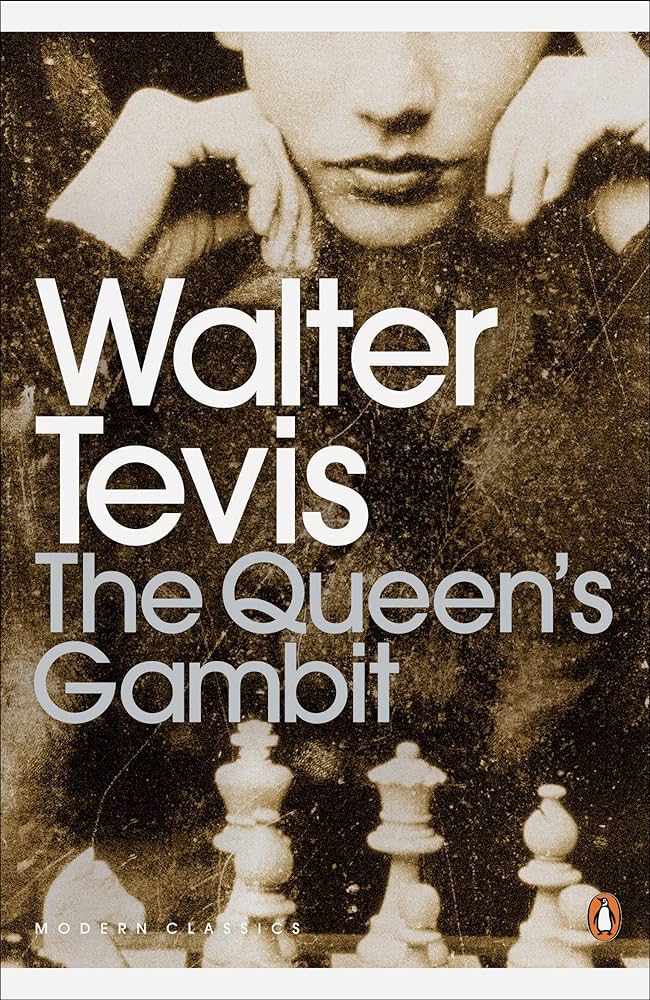 “Reading is the subtle and thorough sharing of the ideas and feelings by underhanded means. It is a gross invasion of privacy and a direct violation of the Constitutions of the Third, Fourth, and Fifth Age. The Teaching of Reading is equally a crime against Privacy and Personhood. One to five years on each count.” Set in a dystopia where it is illegal to read, robots separate from our species and have the job of maintaining knowledge. Of course, with reading comes questions and answers and threatens the control the robots have slowly been handed. Keep in mind, it is clear that in this story we handed the control to the robots. Just as we log into Big Brother in the form of social media, in a way
“Reading is the subtle and thorough sharing of the ideas and feelings by underhanded means. It is a gross invasion of privacy and a direct violation of the Constitutions of the Third, Fourth, and Fifth Age. The Teaching of Reading is equally a crime against Privacy and Personhood. One to five years on each count.” Set in a dystopia where it is illegal to read, robots separate from our species and have the job of maintaining knowledge. Of course, with reading comes questions and answers and threatens the control the robots have slowly been handed. Keep in mind, it is clear that in this story we handed the control to the robots. Just as we log into Big Brother in the form of social media, in a way
that would probably would have stunned George Orwell. Tevis on the other hand imagined it pretty clearly.
Set in a dystopia where it is illegal to read, robots separate from our species and have the job of maintaining knowledge. Of course, with reading comes questions and answers and threatens the control the robots have slowly been handed. Keep in mind, it is clear that in this story we handed the control to the robots. Just as we log into Big Brother in the form of social media, in a way that would probably would have stunned George Orwell. Tevis on the other hand imagined it
pretty clearly.
A science fiction novel that reverses the dystopic destruction of books like Fahrenheit 451 with a story about the power of reading in action is refreshing. The San Francisco Chronicle went as far as calling Mockingbird a sequel to Bradbury but I think ‘a response’ is a better description. It is a response in the same way Haldeman’s Forever War is responding to Starship Troopers. Tevis pointed out more than once that he was inspired by the fall of literacy he was watching while teaching high school English for more decades.
“I feel free and strong. If I were not a reader of books I could not feel this way. Whatever may happen to me, thank God that I can read, that I have truly touched the minds of other men.” Tevis doesn’t ignore the pluses and minus of the canon of human writing. Even in Sci-fi for
every Mockingbird, there is Dean Koontz's 40th generation copy of Frankenstein with a dog hero novels. One of the most important and powerful books that Paul reads as he learns the power of reading is titled The Causes of Population Decline. This happened in the world of Mockingbird in the twenty-first century but it is unclear what year exactly. We know humans were still reading and writing in the last date on any of his books is 2135. This is an excellent world-building detail.
The Man Who Fell to Earth and Mockingbird are bookends of Tevis’ bouts with drinking and getting sober. Mockingbird plays with grand themes but is a book about getting sober at the heart of it. Mockingbird follows a character who saves the human race by learning to read a skill we lost when Robots took over most tasks for us. The Man Who Fell to Earth is a very deep novel inspired by Tevis feeling like an alien growing up in Kentucky after being transplanted at 10 years old from a very different San Francisco. I think the heart of the difference is at the end of the quote above. “For the play.” Tevis was coming off the mainstream hit of The Hustler when he wrote his first SF masterpiece, he had a lot to prove. When he wrote Mockingbird he had been away from publishing for almost 20 years he had a lot to prove. The Steps of the Sun is not as tight and coiled as the other Tevis books. He is playing around a bit more. I am not sure how much was influenced by the cancer that was killing him.
The balance Tevis achieved was a dream for many writers to be taken seriously and still be able to write for the fun, for the play. Some in Hollywood have built careers on the “One for them, one for me,” philosophy. I don’t think Tevis was doing that. Most of his novels explore similar themes. It is too bad we didn’t get another decade or two of novels from Tevis, would he have kept that balance? There is no way to know.
Most writers I consider important have a catalog of masterworks, what makes Tevis special is he has two genre masterpieces – and ⅔ is a great batting average. I think all three of his mainstream novels are classics. Five out of six novels being major works is an achievement worthy of
celebration. It is not that Tevis is forgotten, two major streaming series based on his work is a sign of respect, but the impact of his novels is understated. He should be read, taught, and discussed widely.



